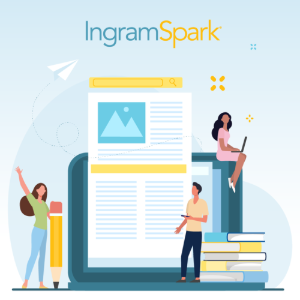You've heard the terms: traditional, hybrid, independent, entrepreneurial, co-publishing, self-publishing. But what do they all mean? And is one better than another?
The first thing you need to know is that some of these terms can be used interchangeably. Co-publishing and entrepreneurial publishing are basically different ways of saying hybrid publishing, much like independent publishing and self-publishing are the same thing. The second thing you need to know is that there is no singularly "right" way to publish your book. It's likely that one path to publishing will be a better option for you than another, depending on your book, how much work you're prepared to do, and how much money you have to spend upfront. The good news is that yes, with various publishing models, there is sure to be one that will work for you!
Take IngramSpark's FREE Online Self-Publishing Course on How to Self-Publish
Traditional Publishing
Prior to the year 2000, there was virtually only one way to get your book published. You'd finish your manuscript, seek out a literary agent, hope they would take you on as a client, and have them shop your book to traditional publishing houses. The publisher would have you work with one of their in-house editors to revise your manuscript, often assuming the creative lead. The publisher would then pass your "baby" onto their in-house design team to work on the font, book cover, and other creative finishing touches. The nice thing about traditional publishing was that the publishing house assumed the financial risk associated with putting your book out, including paying you an advance on potential sales.
Once the 21st century rolled in, however, traditional publishing was no longer seen as the only way "real" authors got published. Thanks to good-old-fashioned readership and advances in experience and technology, hybrid publishing started to trend. As the volume and quality of co-published books improved, more readers and writers began to look at hybrid- and self-publishing in a new, more positive way.
Hybrid Publishing
By the year 2000, even traditional publishers were getting into the hybrid publishing game. Typically set up as a separate division of a big publishing house, hybrid publishing became a "normal" or "acceptable" way to get your book published. Hybrid publishing combines some elements of traditional publishing with those of independent publishing. The traditional publisher takes a financial risk by investing in the hybrid arm of the parent company, but authors take on some of the financial risk as well. Whether part of a larger publishing company or a stand-alone operation, the hybrid publisher takes on expenses such as production, marketing, and distribution to brick-and-mortar stores. The author pays a set fee. The publisher and the author then split the royalties earned from the sale of the book. A good hybrid publisher will offer you something of value that you might not have the time, talent, or desire to do yourself. Under the best scenario, your hybrid publisher will work with you both before and after your book is published to ensure the quality of your—and their—investment.
Self-Publishing
Many authors decide to forgo the services and fees associated with hybrid publishing in favor of spending less money, maintaining all creative control, or for various other reasons. Now almost 20 years into the 21st century, traditional publishing is for the few compared to the millions of authors who are self-publishing their own work. Often referred to as independent publishers, authors who choose to self-publish may still end up investing financially in their work in the form of design and editorial help and book marketing. There continue to be myriad independent editors, illustrators, book designers, and marketing professionals who can make the difference between a blockbuster and a book with mediocre sales. With independent publishing, you get to choose which professional service you're willing to pay for upfront, if any. When it comes to distribution, you make money when someone orders your book; the distributor gets a cut when the sale goes through. If you're an established author or have a lot of marketing and business experience, self-publishing might be your best option.
Learn More
To learn more about independent publishing and distribution feel free to browse around on the IngramSpark site. There are plenty of engaging and helpful resources to guide you through the self-publishing process. For more information on the different ways you can get your book published and how to do so successfully, download The Pocket Guide to Publishing for free now!












